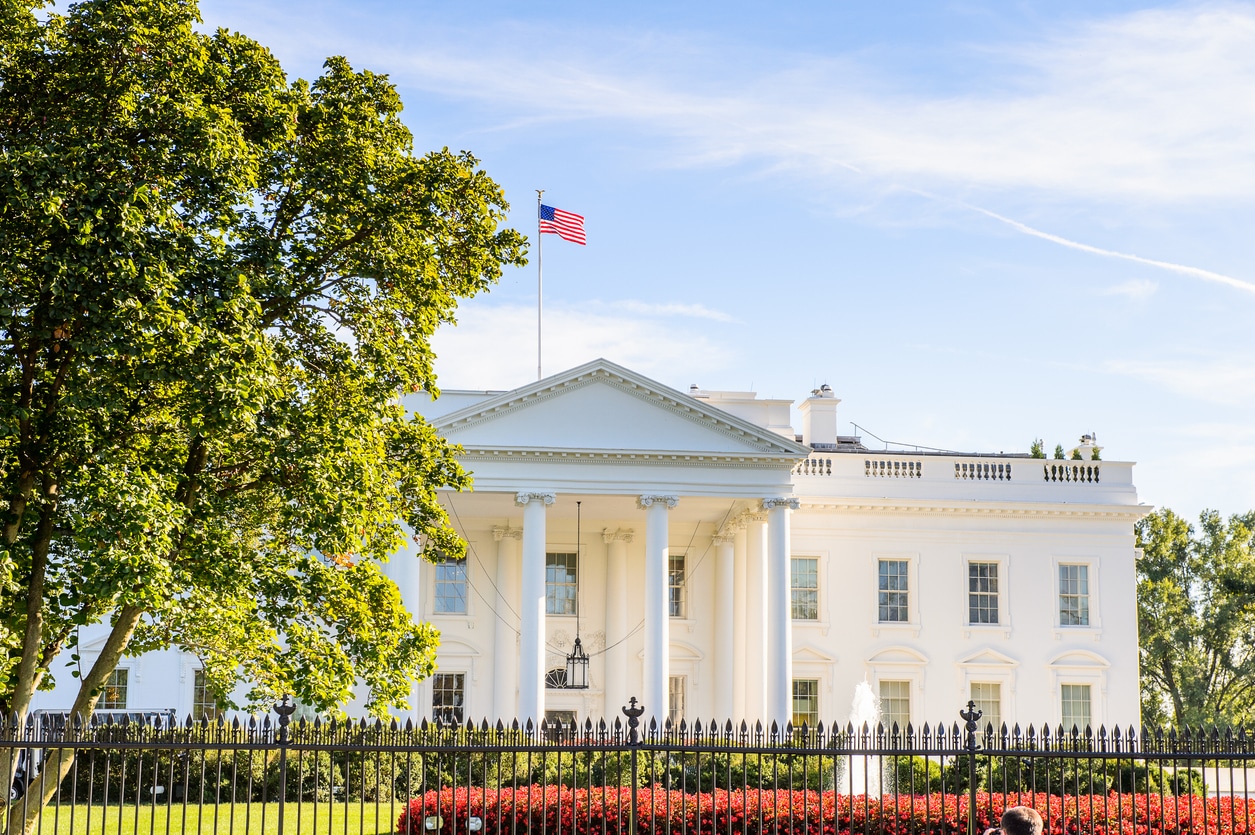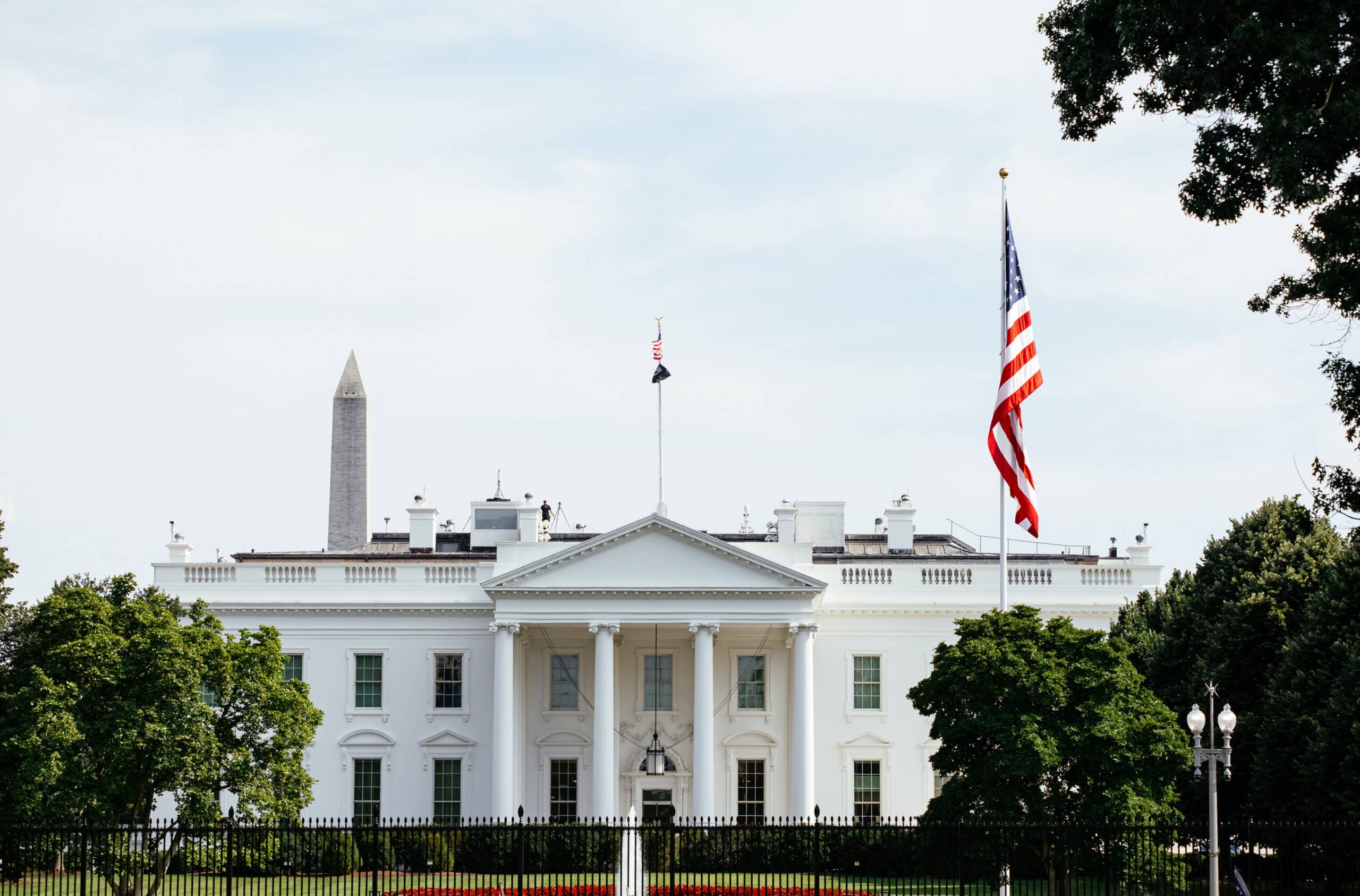A new Emerson College Polling national survey finds 41% of voters approve of the job President Donald Trump is doing in office, while 49% disapprove. This reflects a four-point drop in approval, from 45% in October, while the president’s disapproval increased one point, from 48% to 49%.

“Nearly one year after he was elected, President Trump’s approval has flipped since the first Emerson College poll of the new administration,” Spencer Kimball, executive director of Emerson College Polling, said. “Since his inauguration, Trump has lost support among key groups: Republican voters’ approval decreased 12 points from 91% to 79%, and his disapproval intensified among independent voters, from 44% to 51%, and Hispanics, from 39% to 54%.”
On the generic 2026 congressional ballot, the Democratic candidate has a four-point edge on the Republican, 44% to 40%. Sixteen percent are undecided.
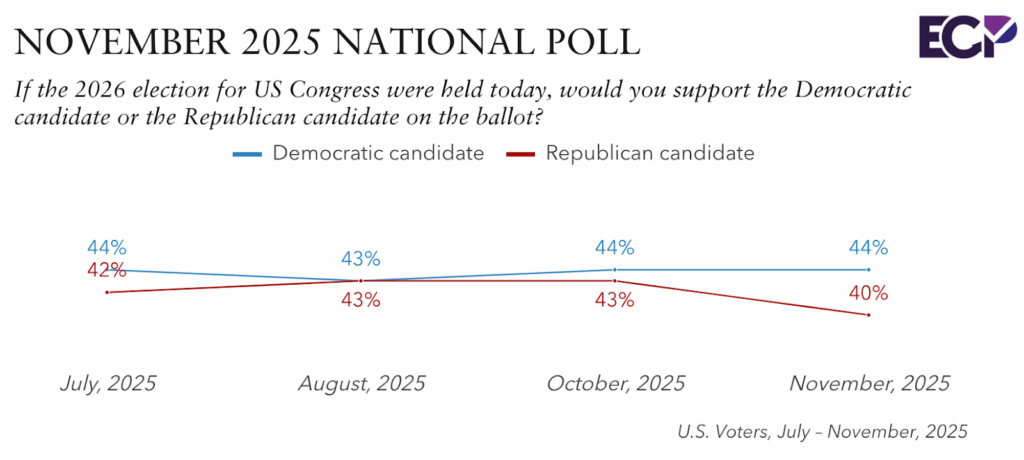
A majority of voters (57%) say they are more motivated to vote than usual compared to last year’s midterm elections, while 12% are less motivated and 31% are about as motivated as usual.
“Democrats report being most motivated to vote in the 2026 Midterm Elections, at 71%, compared to 60% of Republicans, and 42% of independents,” Kimball noted.
Despite having an edge on the ballot, the Democratic Party is viewed less favorably than the Republican Party: 35% have a favorable view of the Democratic Party compared to 44% of the Republican Party. Forty-four percent have an unfavorable view of the Republicans, while 47% have an unfavorable view of the Democrats.
Forty-three percent say their vote in the Midterms will be to express opposition to President Trump, while 29% will vote to express support for Trump, and 28% say Trump is not a factor in their vote.
Voters were asked how important a series of issues are when it comes to their vote in the 2026 Midterm elections. The economy is very important to 75% of voters, followed by threats to democracy at 61%, immigration at 59%, housing affordability at 57%, and abortion at 46%.
In the 2028 Presidential Election, voters were asked an open-ended question of who they would support for the Democratic and Republican nominations at this point. This was first asked in November 2024, following the presidential election.
Gavin Newsom leads with 24%, followed by Kamala Harris at 10% and Pete Buttigieg at 9%. Other candidates to reach over 1% include Alexandria Ocasio-Cortez (3%), Josh Shapiro (3%), Andy Beshear (2%), and JB Pritzker (2%). Thirty-five percent are undecided.
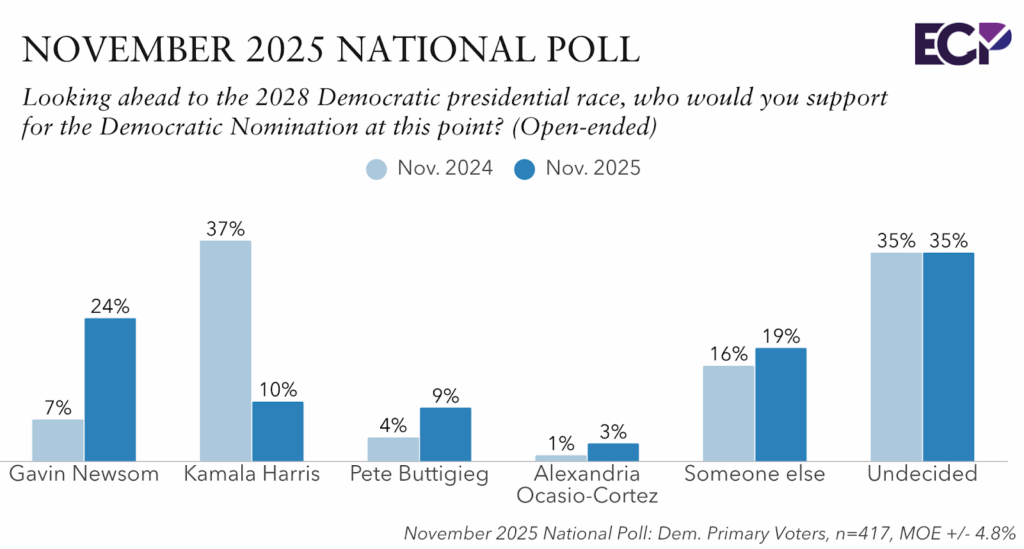
In the Republican Primary, a majority of voters support JD Vance (54%), while 7% support Donald Trump, 6% Marco Rubio, 2% Ron DeSantis, and 6% support someone else. Twenty-five percent are undecided.
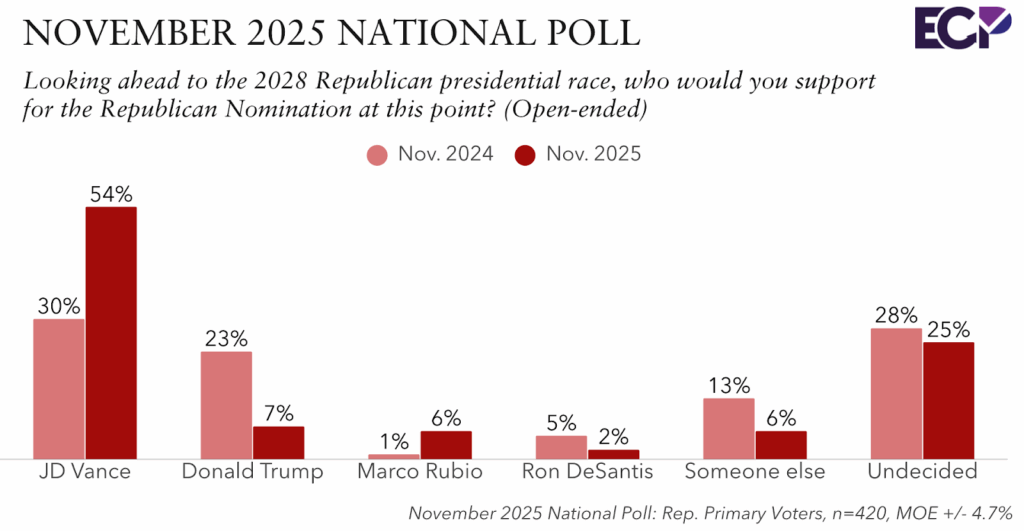
METHODOLOGY
The Emerson College Polling national survey was conducted November 3-4, 2025. The sample of active registered voters, n=1000, has a credibility interval, similar to a poll’s margin of error (MOE), of +/- 3 percentage points. The data sets were weighted by gender, education, race, age, party, and region based on U.S. Census parameters and voter file data.
It is important to remember that subsets based on demographics, such as gender, age, education, and race/ethnicity, carry with them higher credibility intervals, as the sample size is reduced. Survey results should be understood within the poll’s range of scores, and with a confidence interval of 95% a poll will fall outside the range of scores 1 in 20 times.
Data was collected by contacting a voter list of cellphones via MMS-to-web text of an opt-in probability panel of voters provided by the Consensus Panel, and additional online panel interviews provided by CINT. Panel responses were matched to the Aristotle voter file using respondents’ full name and ZIP code. The survey was offered in English.
All questions asked in this survey with the exact wording, along with full results, demographics, and cross tabulations can be found under Full Results. This survey was funded by Emerson College.




